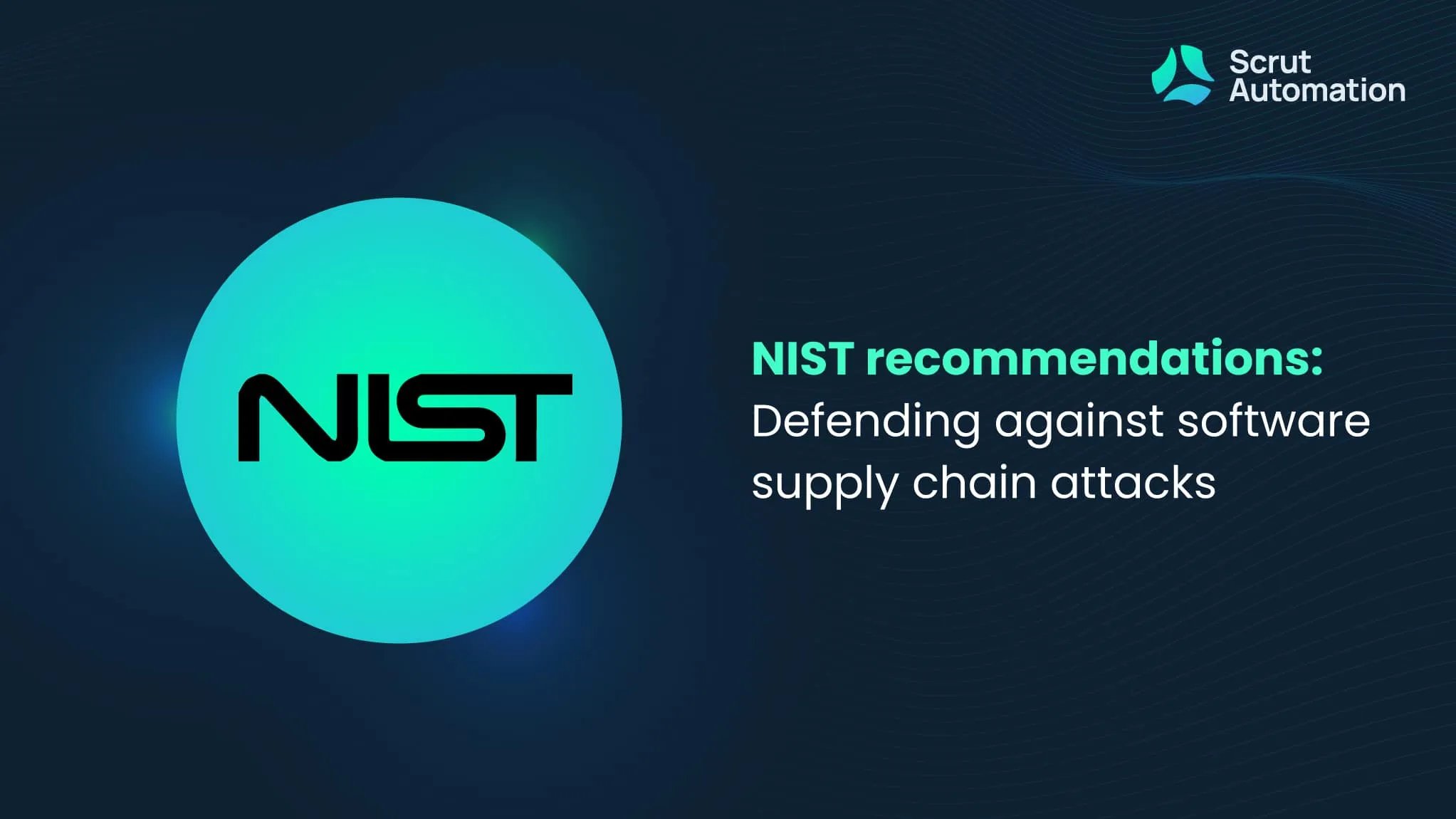GDPR vs HIPAA compliance: What's the difference?

Classifying and comparing information security frameworks to understand which standard suits the nature of data handled by your organization is a necessary yet challenging task.
Lately - with the rise of data breaches in prominent enterprises like Microsoft, Uber, Tata Power, and Twitter - there has been a surge in organizations looking to protect their client's personal information, which has, in turn, resulted in bringing HIPAA and GDPR into the limelight.
Both Health Insurance Portability and Accountability Act as well as General Data Protection Regulation, are two of the most popular data privacy regulations that organizations must adhere to. With their common aim to protect personal information and enhance confidentiality, it is sometimes difficult to underline their differences.
This article attempts to explain the similarities and differences between HIPAA and GDPR. We will learn about their specific compliance requirements and provide you with the information required to make an objective choice.
What is GDPR?
General Data Protection Regulation (GDPR) is one of the world's most challenging privacy and security laws. GDPR was finally converted into law on 25 May 2018 after the European Union carefully implemented reforms for data protection and established the regulatory framework across Europe.
Primarily, GDPR mandates businesses to protect the privacy of clients residing in the European Union, but it can also safeguard the privacy of personal data processed outside of areas such as the EU and EEA (European Economic Area).
GDPR provides citizens control over the use of their personal information and requires businesses to implement data protection measures to protect personal information from theft, fraud, and misuse.
Other than protecting consumer data privacy, organizations aim to comply with GDPR since it helps avoid hefty noncompliance penalties, which can be as high as 4% of your global annual revenue. It also enhances your organization's reputation and validates it as dedicated to enhancing consumer data privacy.
What is HIPAA?
Launched in 1996, the Health Insurance Portability and Accountability Act (HIPAA) is a data protection regulation. It provides healthcare providers, health insurers, third-party dealers, and employees handling personal health information with a set of adherence requirements for the privacy and confidentiality of clients.
The Office for Civil Rights of the United States Department of Health and Human Services enforces HIPAA. If your organization fails to comply with its requirements, you could face significant fines and irreversible damage to your reputation.
Under HIPAA, organizations dealing with PHI must implement the necessary security measures, such as data governance procedures, to protect the client's personal data. The privacy, security, and breach notification rules are all part of the law. These three rules work in tandem to safeguard individuals' privacy and give them access to their personal information.
GDPR vs HIPAA compliance - How do they differ?
Does compliance with HIPAA make my organization automatically compliant with GDPR? What are the primary points to keep while pursuing GDPR and HIPAA compliance? Which privacy regulation outweighs the other - GDPR or HIPAA?
Questions like these are rightfully being raised by organizations worldwide dealing with sensitive data. In order to differentiate between HIPAA and GDPR objectively, we have picked common fields like purpose, scope, etc., that will provide you with a comprehensive overview of each standard.
Protected data
While GDPR is related to protecting Personal Information (PI), HIPAA concerns itself with protecting Personal Health Information (PHI). PI refers to the data that can lead to an individual's personal identification, while PHI in addition to personal information, also includes information about the individual's health status, care, or payment.
Applicability
GDPR applies to organizations dealing with personal information, while HIPAA applies to all business associates and covered entities, including healthcare providers and clearinghouses dealing with PHI.
Scope
In terms of scope, HIPAA applies to covered entities within the United States, while GDPR is globally applicable to organizations dealing with the personal information of EU citizens.
Consent
The GDPR regulation states that in order to process personal data, explicit consent of the client is necessary. However, HIPAA does not require consent before processing PHI for treatment purposes.
Data security
Both GDPR and HIPAA are highly classified regulations and require organizations to take the necessary steps in order to protect the security, integrity, and confidentiality of personal information.
Consumer rights
HIPAA does not provide exclusive individual rights, but GDPR does. It gives clients complete control over the use of their personal information. On request, clients can know where the data is being used as well as have their data deleted if needed.
Penalties
In case of a breach, GDPR and HIPAA have strict fines. The former has set a maximum fine of €20 million or 4% of annual global turnover, whichever is greater. In contrast, the latter has established penalties for noncompliance based on the level of negligence, with penalties ranging from $100 to $50,000 per violation.
Summarizing key differences between GDPR and HIPAA compliance
Controlled access to sensitive information, providing organizational privacy, and detecting unauthorized changes to personal information, are a few similarities both HIPAA and GDPR share. However, their differences take a superior focus in the long run.
Below are the three key differences that may help you reach a suitable conclusion on the debate of GDPR vs HIPAA compliance.
1. Consent
One of the primary points of difference between HIPAA and GDPR is that while the former allows for PHI disclosure without consent from the patient in certain circumstances, the latter doesn't share and use any information without explicit consent from the concerned party.
Under HIPAA, healthcare providers may share personal health information with other healthcare providers or even with other business associates for treatment purposes without patient consent.
But as per GDPR guidelines, any personal data interaction that is not directly connected to the customer can proceed only with the explicit consent of the client.
2. RBF - right to be forgotten
Another key difference between these two frameworks comes with awarding their patients with the right to be forgotten. While GDPR provides the data subjects with the 'right to be forgotten', HIPAA has no such policy in place.
3. Data breaches
Healthcare providers who are trying to maintain patient care and abide by important frameworks and regulations are very concerned about data breaches - which is another key difference between HIPAA and GDPR.
Under the HIPAA Breach Notification Rule, covered entities and business partners must alert individuals who may have been affected if unsecured PHI is compromised. It states that you must provide 60 days' notice to each affected person and the Office for Civil Rights (OCR) if more than 500 people are involved. In case of minor breaches, you must notify the OCR and those affected by the annual reporting deadline.
However, With GDPR, this is not the case. An obligation to report a breach, despite its size or impact, within 72 hours is listed under Article 33 of the GDPR standard. Care providers must report a breach to their supervisory authority.
Conclusion
Despite the key differences, there are certain areas where both frameworks overlap and share similarities, especially with reference to protecting the privacy of data subjects. If your organization is already HIPAA or GDPR-compliant, It is likely that you already have several safeguards in place to protect data.
Understanding the difference between GDPR vs HIPAA compliance can be a challenging task, especially while focusing on business operations and growth. But simplifying compliance is also a possibility with Scrut.
Frequently asked questions (FAQs)
1. Do GDPR and HIPAA overlap? In order to comply with GDPR, all personal data must meet certain criteria. Personal data is any information that may be used to directly or indirectly identify a person. The data that HIPAA regulates is considerably more specifically defined as protected health information (PHI), which includes information about health status and healthcare.
The most striking overlapping factor for both these standards is that they have security at the core of their requirements, which creates several similarities between both standards.
2. Can compliance with both GDPR and HIPAA be pursued at the same time? Yes, your organization can pursue multiple certifications at the same time. Even though it is a difficult task, it is possible, especially with the help of modern compliance platforms like Scrut. In fact, compliance with HIPAA actively aids in getting compliant with GDPR since both of them need to have several common technical safeguards.
3. Is HIPAA applicable to the same organizations as GDPR? GDPR is applicable to all multinational and international companies that deal with the personal data of EU citizens. GDPR establishes requirements for the entirety of the industries that interact with consumer data, unlike HIPAA, which only applies to the covered entities and business partners.
Scrut Automation is a smart and radically simple governance, risk, and compliance automation platform for growing startups and mid-market enterprises. With Scrut, compliance teams can reduce ~70% of their manual effort in continuously maintaining compliance towards SOC 2, ISO 27001, GDPR, PCI DSS, HIPAA, and CCPA. Schedule your demo today to see how it works.


















